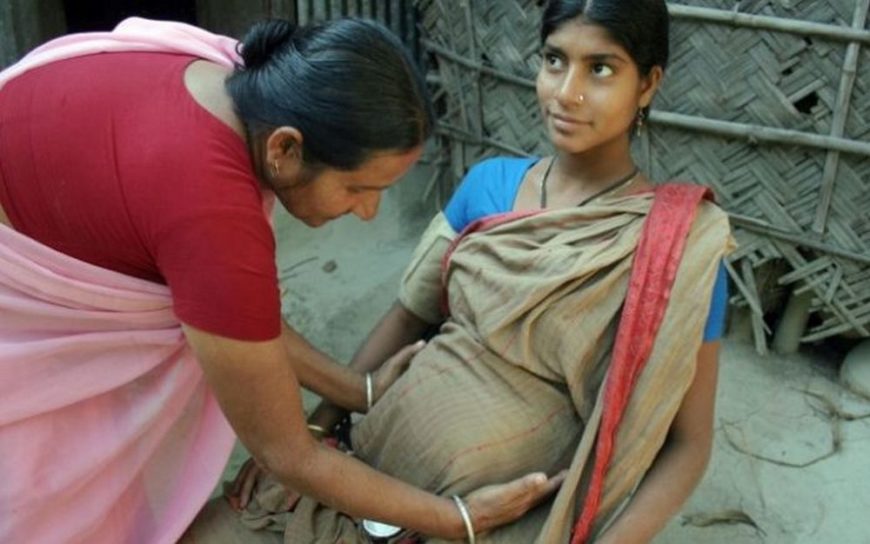Maternity Benefit Programs: An Investment in Human Resource
Women, as bearers and rearers of children, form the foundation for bringing about the next generation of human resources for the economy. To breed good human resources, better nutrition for pregnant women & lactating mothers (PW & LM) is essential. It provides a strong economic justification for maternity benefits interventions. There is diversity in maternity benefits under the various programs implemented in different countries in formal and informal economies. Most of the developed, as well as developing countries, have legislation/policies for providing universal health coverage for PW & LM employed in the formal economy. But women employed in the informal economy lack social protection and paid maternity leaves, especially in low- and middle-income countries. The informal sector employs 60 percent of the female workforce and non-contributory cash transfers can be an innovative way to improve mother and neonatal nutritional status. This study presents a state-of-the-art review of the provisions of maternity benefits and their outcome in different nations as well as their implications on maternal and newborn health. An efficiently implemented maternity benefits program with the provision of cash incentives, nutrition supplement package, and paid maternity leave has several outcomes in terms of long duration & frequent exclusive breastfeeding, distribution of resources & disintegration of poverty transfer, reduced financial and gender inequality, quality childcare – which develops self-confidence and improved social & learning skills for better competence and career attainments – reduced MMR and IMR. And it is more of an investment in its human resource rather than a financial burden for a nation. This paper also addresses key issues in the field of maternal health care and can be advantageous for both beneficiaries as well as policymakers.
Population Review
Volume 61, Number 1, 2022
Type: Policy Note, pp. 58-67
Maternity Benefit Programs: An Investment in Human Resource
Authors: Bishnoi and V. K. Bishnoi
Authors affiliations: Guru Jambheshwar University of Science & Technology, India
(N. Bishnoi); Guru Jambheshwar University of Science & Technology, India
(V.K. Bishnoi);
Corresponding author/address: Nisha Bishnoi, Haryana School of Business
Guru Jambheshwar University of Science & Technology, Hisar
Haryana-125001, India
email: nishamitu29@gmail.com
Abstract
Women, as bearers and rearers of children, form the foundation for bringing about the next generation of human resources for the economy. To breed good human resources, better nutrition for pregnant women & lactating mothers (PW & LM) is essential. It provides a strong economic justification for maternity benefits interventions. There is diversity in maternity benefits under the various programs implemented in different countries in formal and informal economies. Most of the developed, as well as developing countries, have legislation/policies for providing universal health coverage for PW & LM employed in the formal economy. But women employed in the informal economy lack social protection and paid maternity leaves, especially in low- and middle-income countries. The informal sector employs 60 percent of the female workforce and non-contributory cash transfers can be an innovative way to improve mother and neonatal nutritional status. This study presents a state-of-the-art review of the provisions of maternity benefits and their outcome in different nations as well as their implications on maternal and newborn health. An efficiently implemented maternity benefits program with the provision of cash incentives, nutrition supplement package, and paid maternity leave has several outcomes in terms of long duration & frequent exclusive breastfeeding, distribution of resources & disintegration of poverty transfer, reduced financial and gender inequality, quality childcare – which develops self-confidence and improved social & learning skills for better competence and career attainments – reduced MMR and IMR. And it is more of an investment in its human resource rather than a financial burden for a nation. This paper also addresses key issues in the field of maternal health care and can be advantageous for both beneficiaries as well as policymakers.
Keywords
Conditional Cash Transfer, Maternity Benefit, breastfeeding, Unorganized sector, informal economy, India
© 2022 Sociological Demography Press
MLA
Drioui, Chaimae and Fatima Bakass. “Fertility Preferences and Outcomes in Morocco: Does Women’s Empowerment Matter in Actual-ideal Gap?” Population Review, vol. 61 no. 1, 2022, p. 1-30. Project MUSE muse.jhu.edu/article/842810.
APA
Drioui, C., & Bakass, F. (2022). Fertility Preferences and Outcomes in Morocco: Does Women’s Empowerment Matter in Actual-ideal Gap?Population Review 61(1), 1-30. https://www.muse.jhu.edu/article/842810.
Chicago
Drioui, Chaimae, and Fatima Bakass. “Fertility Preferences and Outcomes in Morocco: Does Women’s Empowerment Matter in Actual-ideal Gap?” Population Review 61, no. 1 (2022): 1-30. muse.jhu.edu/article/842810.
Endnote
TY – JOUR T1 – Fertility Preferences and Outcomes in Morocco: Does Women’s Empowerment Matter in Actual-ideal Gap? A1 – Drioui, Chaimae A1 – Bakass, Fatima JF – Population Review VL – 61 IS – 1 SP – 1 EP – 30 PY – 2022 PB – Sociological Demography Press SN – 1549-0955 UR – https://muse.jhu.edu/article/842810 N1 – Volume 61, Number 1, 2022 ER –
Always review your references for accuracy and make any necessary corrections before using. Pay special attention to personal names, capitalization, and dates. Consult your library for more information on citing sources.



